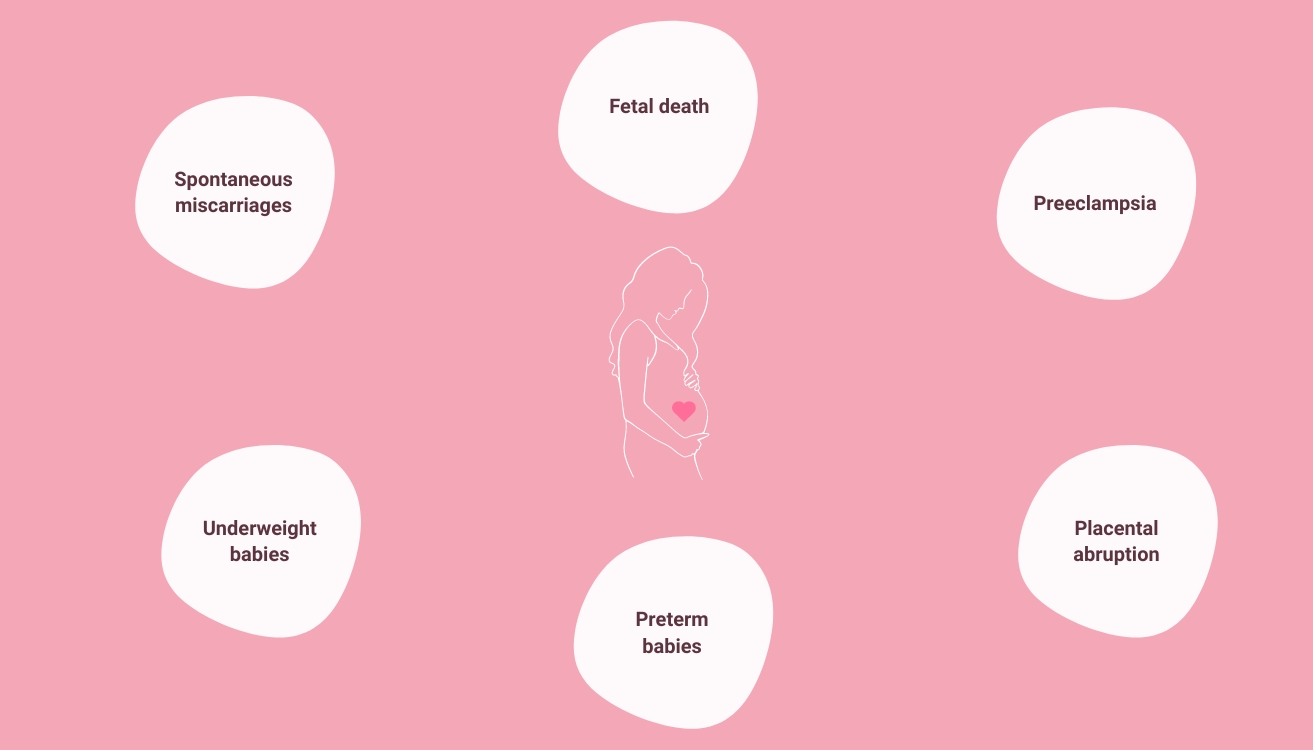
HEREDITARY THROMBOPHILIA SCREENING: GENETIC THROMBOPHILIA'S ROLE IN FERTILITY CHALLENGES
Genetic or Hereditary thrombophilia, refers to a predisposition to develop blood clots due to inherited genetic mutations that affect the blood's clotting ability. It can lead to infertility and miscarriages by disrupting blood flow in the reproductive system and during pregnancy. It affects implantation, fetal development, and pregnancy outcomes, especially in assisted reproductive techniques. Testing for thrombophilia is vital for those with fertility issues or pregnancy complications to manage risks and improve outcomes.
The panel screens for the following 5 mutations: Factor V Leiden mutation, MTHFR C677T mutation, MTHFR A1298C mutation, PAI-1 (plasminogen activator inhibitor activator), Factor II Prothrombin (PT) G20210A mutation.
Hereditary Thrombophilia Screening panel
320€

Blood Draw

No doctor's referral

Periheral blood

Storage & Shipping at ambient temperature

Results in 10 business days
Time matters! FastTrack Results.

Your time matters because your journey should always be a priority, every step of the way.
Fertilysis FastTrack Results stand as a commitment to remove barriers and redefine timelines. Get your test results in 5 working days expedited, from the day your sample reaches us, instead of the standard processing time.
290€
WE GOT YOU.
Genetic thrombophilia refers to a predisposition to develop blood clots due to inherited genetic mutations that affect the blood's clotting ability. As pregnancy is considered a prothrombotic state due to various changes in the body that promote blood clotting, several studies have suggested a potential link between genetic thrombophilia and infertility as well as recurrent miscarriages.
Spiral Artery Remodeling during Pregnancy
During pregnancy, the process of spiral artery remodeling takes place in the uterus, which is essential for maintaining adequate blood flow to the placenta and supporting the developing fetus. This remodeling allows for increased blood flow, ensuring the delivery of vital nutrients and oxygen to the fetus.
Spiral Artery Remodeling during Pregnancy
During pregnancy, the process of spiral artery remodeling takes place in the uterus, which is essential for maintaining adequate blood flow to the placenta and supporting the developing fetus. This remodeling allows for increased blood flow, ensuring the delivery of vital nutrients and oxygen to the fetus.
Uteroplacental Thrombosis and Pregnancy Complications
The formation of small blood clots within the uterine blood vessels, a condition known as uteroplacental thrombosis can interfere with the implantation process by disrupting the normal vascular supply to the endometrium and placenta, thereby compromising embryo attachment and subsequent pregnancy maintenance. Uteroplacental thrombosis provides a common pathophysiological link between various poor pregnancy outcomes, including recurrent miscarriage, stillbirth, placental abruption, fetal growth restriction and pre-eclampsia. Its significance depends on the gestational age. Acquired and genetic thrombophilia may be associated with such conditions, particularly in early-onset disease.
Thrombophilia complications in pregnancy:

Consider Thrombophilia testing:
NOTE:
It's important to note that while genetic thrombophilia may increase the risk of infertility and miscarriage, not all individuals with these genetic mutations will experience reproductive complications. Furthermore, the relationship between genetic thrombophilia and infertility/miscarriage is complex and may involve other contributing factors, such as maternal age, lifestyle factors, and additional medical conditions. Therefore, individuals concerned about the potential impact of genetic thrombophilia on fertility or pregnancy outcomes should consult with a healthcare provider for personalized evaluation and management.
To mitigate thrombophilia-related risks, it is crucial for pregnant women with known thrombophilia to receive close monitoring from healthcare providers.
Lifestyle or other circumstantial Risk factors, as well as acquired and genetic thrombophilia, often coexist and reinforce each other. Thus, appropriate thromboprophylaxis needs to be considered and applied on an individual basis. your doctor will decide whether or not your results indicate an increased risk factor specifically for you, based on your medical profile, lifestyle, family history etc. and whether a pharmaceutical intervention is recommended or not. Especially for pregnancy, your doctor may consider anticoagulant medications, such as baby aspirin and low molecular weight heparin, to reduce the likelihood of blood clots, ensure proper blood flow to the placenta and fetus, and improve fertility outcomes. Consulting with healthcare professionals experienced in managing thrombophilia during pregnancy is essential to determine the most appropriate treatment approach. Your doctor might also consider further non-genetic blood coagulation testing such as Protein C, S and APC resistance as well as evaluation of antiphospholipid syndrome including anti-cardiolipin, anti-β2-Glycoprotein I, lupus anticoagulant (dRVVT), anti-TPO, anti-TG and anti-nuclear antibody testing.
In addition to any medical interventions, life-style adjustments may be beneficial when you have genetic thrombophilia, including:
HOW IT WORKS.

Place your order online and get the FERTILYSIS box delivered at your home.

Follow our instructions to collect your samples and ship them back to us for analysis.

Receive your easy to understand results including treatment suggestions in just a few days via email.
Is your infertility really ‘’unexplained’’ or are you still undiagnosed?If you have been struggling with infertility and haven’t been getting convincing answers, chances are you are still missing a piece of the puzzle.
STILL HAVE QUESTIONS?

These our the most common questions regarding this panel.
If you have more, please refer to our Q&A page.
The perform the test, please provide us with a sample of peripheral blood, collected in a lavender vial. This can be easily done by a certified healthcare professional such as a nurse, lab technician, or physician, following our instructions, at a licensed medical facility in your vicinity. To ensure prompt processing, we kindly request that you send us the vials on the same day as the blood draw, facilitating expedited receipt. For optimal timing, we recommend coordinating the blood draw and vial pickup for a Monday to mitigate any transit delays over the weekend.
No special instructions are required prior to performing the test (fasting etc).
Absolutely! Our specially developed preservative ensures that Fertilysis DFI test is possible through mail order from the comfort of your home without the discomfort associated with semen sample collection in a medical facility or waiting lists. We ship worldwide!
If your order includes Reproductive Immunology testing alongside Thrombophilia testing, an additional vial may not be required for the thrombophilia testing.


